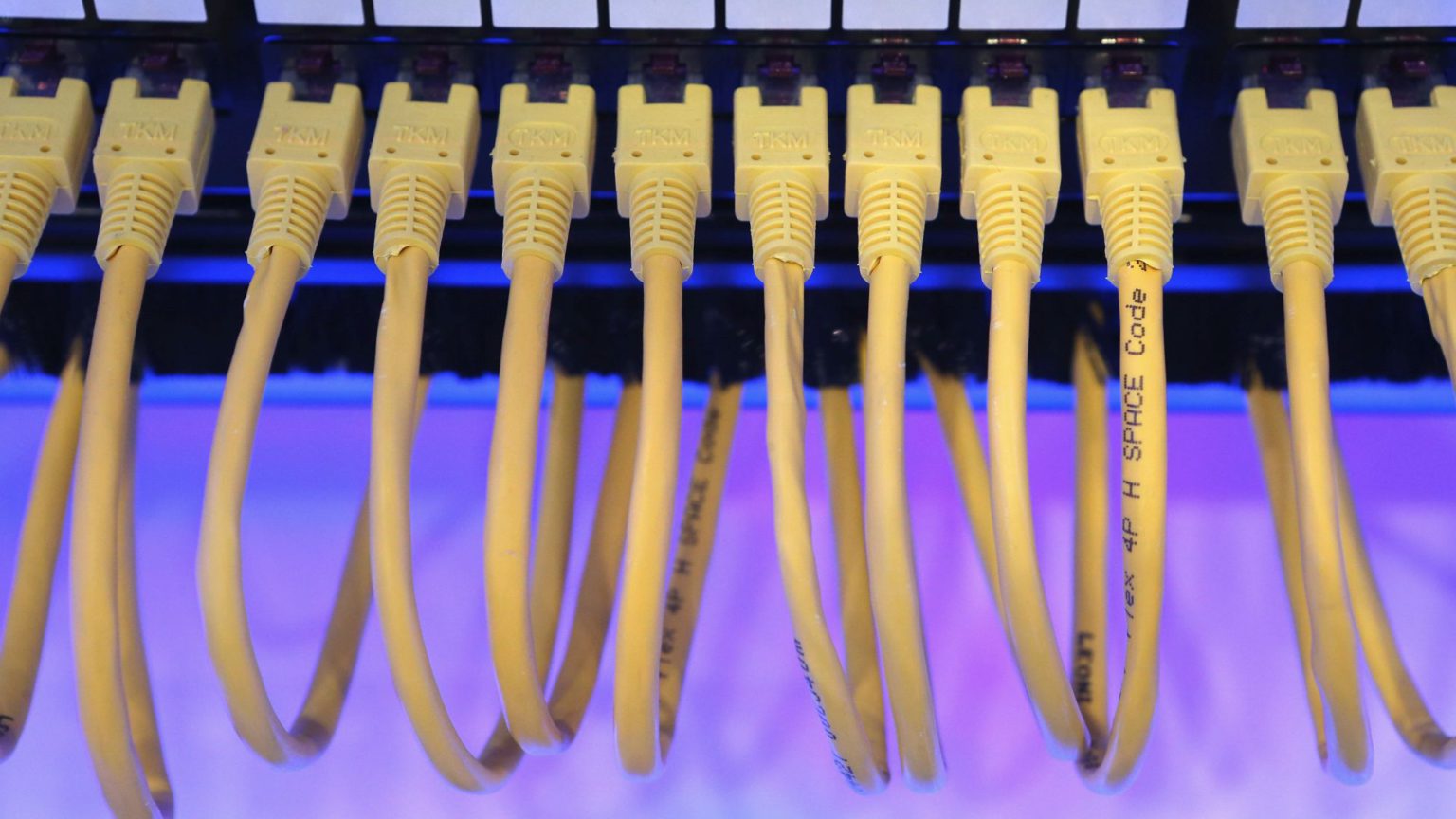Why Labour’s ‘free broadband’ is a terrible idea
Putting authoritarians in control of the means of communication? Don’t even think about it.

Want to read spiked ad-free? Become a spiked supporter.
I can’t have been the only person who experienced a little shiver down the spine at the thought of a Jeremy Corbyn government nationalising broadband.
Corbynistas are notoriously illiberal and censorious. They loathe the tabloid press. They cheered the Leveson showtrial of redtop journalists and editors. They support Section 40 of the Crime and Courts Act, which would cajole all publications to sign up to state-approved regulation – something we haven’t had in this country for 350 years.
And the footsoldiers of the Corbyn movement, that army of woke middle-class agitators and Fisher-Price revolutionaries, are forever engaging in Twitch-hunts against women who question transgenderism, people who are sceptical about climate change, and basically anyone who doesn’t 100 per cent agree with their PC ideology.
Entrusting the key means of communication to such people would be insane. Imagine the terms and conditions. Thinking of going online to say something really outrageous like ‘People with penises are men’ or ‘Diane Abbott just said something daft on Question Time’? Think again!
This is the news that one of Labour’s big ideas in this election is to provide every home and business in the country with free full-fibre broadband by 2030. This would involve nationalising part of BT – namely, its digital wing OpenReach. The aim would be to provide a nationwide internet connection owned by the government.
Labour says the plan would cost £20 billion. BT, apparently taken aback by Labour’s proposal, says it would cost £100 billion. Boris Johnson says it’s a ‘crackpot scheme’.
Leaving aside the sums and the viability of the initiative, the bigger questions are why Labour is making this proposal and what likely impact a government-owned internet service would have on the nation and its citizens.
The ‘why’ is fascinating. This looks a lot like Labour throwing free gifts at people to try to distract our attention from the fact that one of its key promises in this election is to make null and void the votes that millions of people cast in the referendum in 2016.
There is an undeniably patrician streak in this broadband proposal. Labour is effectively saying, ‘Never mind that we plan to overthrow those votes from the 2016 referendum and force through a second referendum – just look at this shiny gift we are offering you!’
It smacks of when bosses of old would offer workers perks and presents if they promised to vote in the ‘correct’ way. It confirms the extent to which Corbyn’s Labour, for all its pretence of radicalism, views the masses more as consumers than as active democrats.
So it presumes we will be happy with a freebie (which won’t actually be free, given it will be funded by our own taxes), so much so that we might actually forget that Labour and its bourgeois agitators in the Momentum movement are trouncing the most important vote people have cast for a very long time: the vote for Brexit.
It diminishes citizens to treat them like children who should be content with a few crumbs from the government’s table. People want to be treated as serious, active players in society – and that’s something the current patrician, anti-democratic Labour Party cannot offer us.
And then there’s the issue of the impact this policy would have. To put it bluntly, putting Corbyn and his crew in charge of the technology that facilitates the sharing of ideas, beliefs and conversations is like asking a wolf to herd your sheep.
Of course, telecommunications in this country have been nationalised in the past. BT was only privatised in 1984. But we live in a very different climate now, one in which we aren’t only talking about the government providing the machinery that allows people to natter on the phone, but about a Corbyn-led government aspiring to oversee the connections that facilitate political debate, social sharing, argumentation, and much, much more.
It would be wild to grant control over broadband to a political organisation that has amply demonstrated its hostility to open debate and internet freedom.
This isn’t about being anti-nationalisation. It makes sense for certain areas of life to be nationalised, to be elevated out of the arena of the profit motive and injected with a bigger sense of social purpose and mission. Education, health, maybe the railways too.
But broadband? Communications? Nope. Not today. Not when we live under bureaucracies that care very little for freedom of speech. And certainly not under a Labour Party that can’t even spell the word liberty.
Brendan O’Neill is editor of spiked and host of the spiked podcast, The Brendan O’Neill Show. Subscribe to the podcast here. And find Brendan on Instagram: @burntoakboy
Picture by: Getty
Who funds spiked? You do
We are funded by you. And in this era of cancel culture and advertiser boycotts, we rely on your donations more than ever. Seventy per cent of our revenue comes from our readers’ donations – the vast majority giving just £5 per month. If you make a regular donation – of £5 a month or £50 a year – you can become a and enjoy:
–Ad-free reading
–Exclusive events
–Access to our comments section
It’s the best way to keep spiked going – and growing. Thank you!











Comments
Want to join the conversation?
Only spiked supporters and patrons, who donate regularly to us, can comment on our articles.